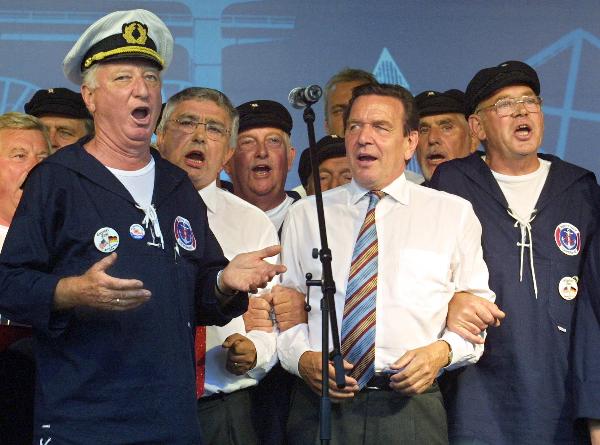Source

Source: picture-alliance / dpa (c) dpa – Fotoreport
In the run-up to the Bundestag elections in 1998, 2002, and 2005, Gerhard Schröder proved himself to be an adept campaigner. Having come from a modest background, he often emphasized his ties to the people – which frequently resulted in accusations of populism. There is no denying that the SPD benefited from his personal popularity, but his leadership style, which emphasized the executive branch of government, also put him at odds with his party, because he failed to communicate and share information with other party members. This problem became particularly evident in the debate on the social-spending cuts envisaged by Agenda 2010. In May 2005, in response to crushing losses in the state parliamentary elections [Landtagswahlen] and the rejection of Agenda 2010 by the SPD’s left-wing, Schröder called for early new elections. This photograph shows Chancellor Gerhard Schröder (second from right) singing with SPD Bundestag member Jann-Peter Janssen (second from left) and the Loppersum Shanty Choir at an SPD election rally in the north of Germany (Aurich district, Lower Saxony).

Source: picture-alliance / dpa (c) dpa – Fotoreport